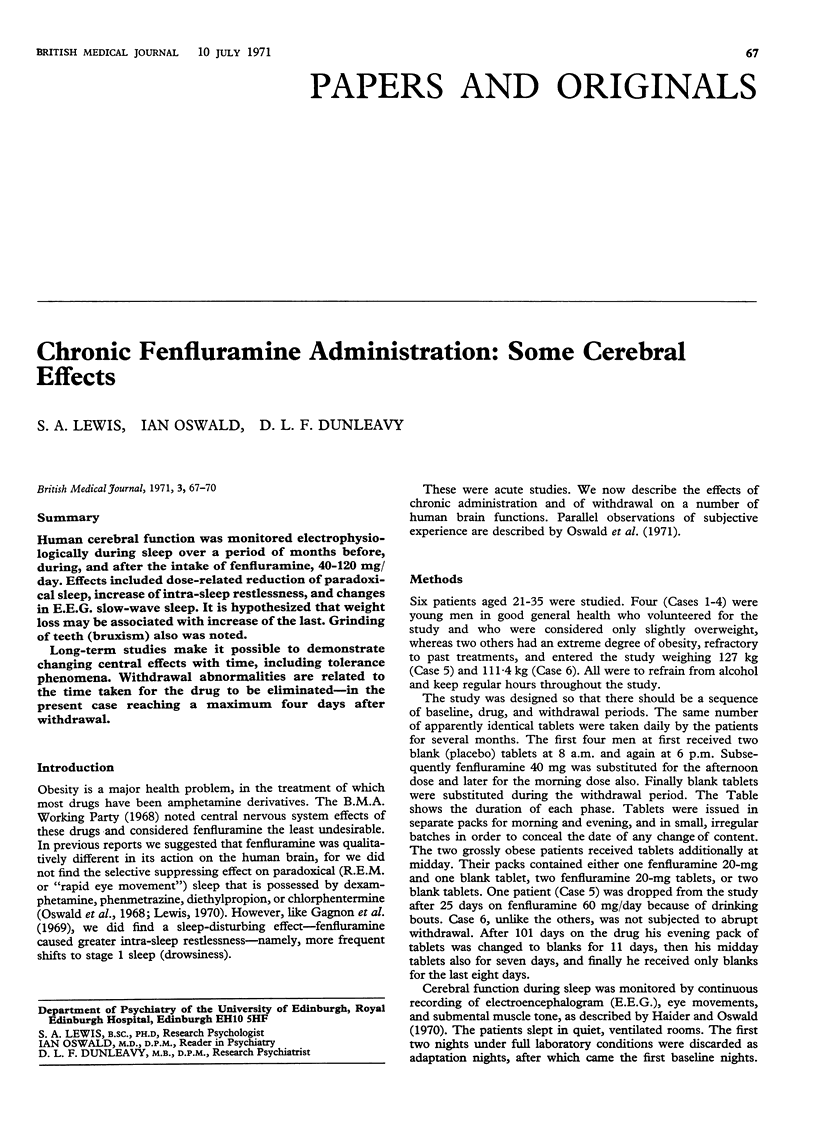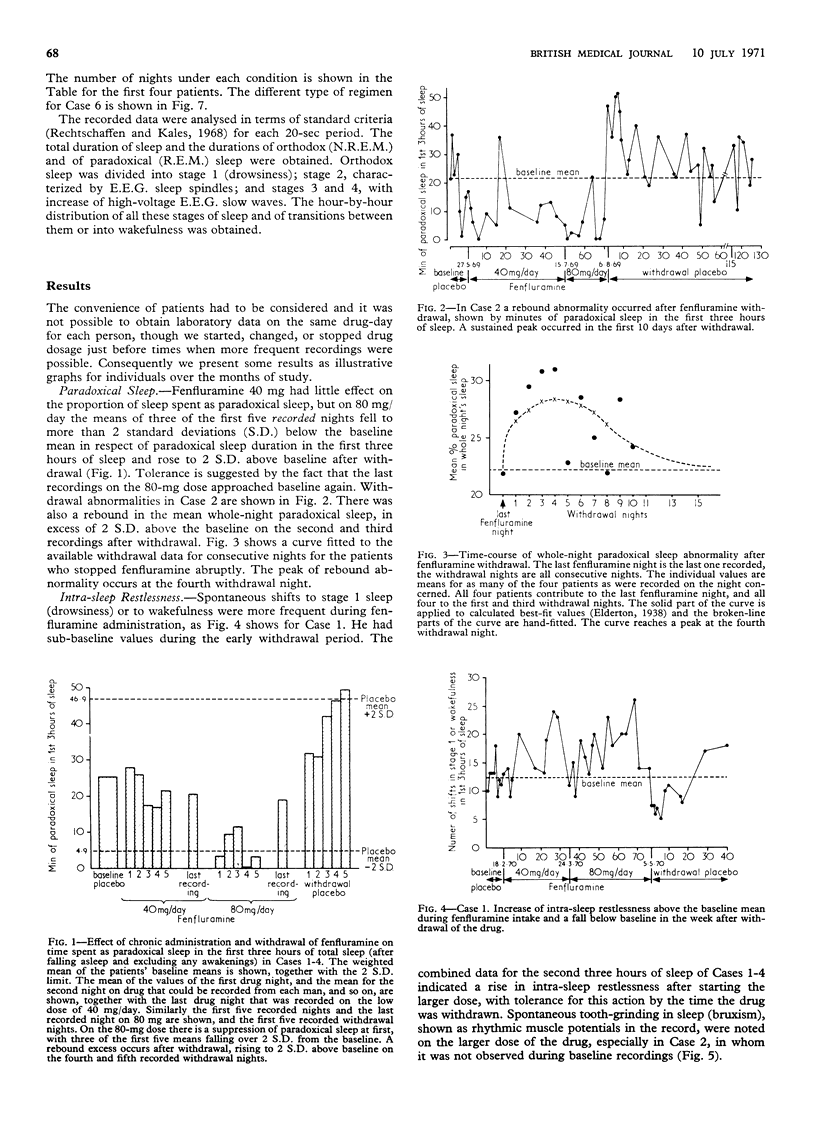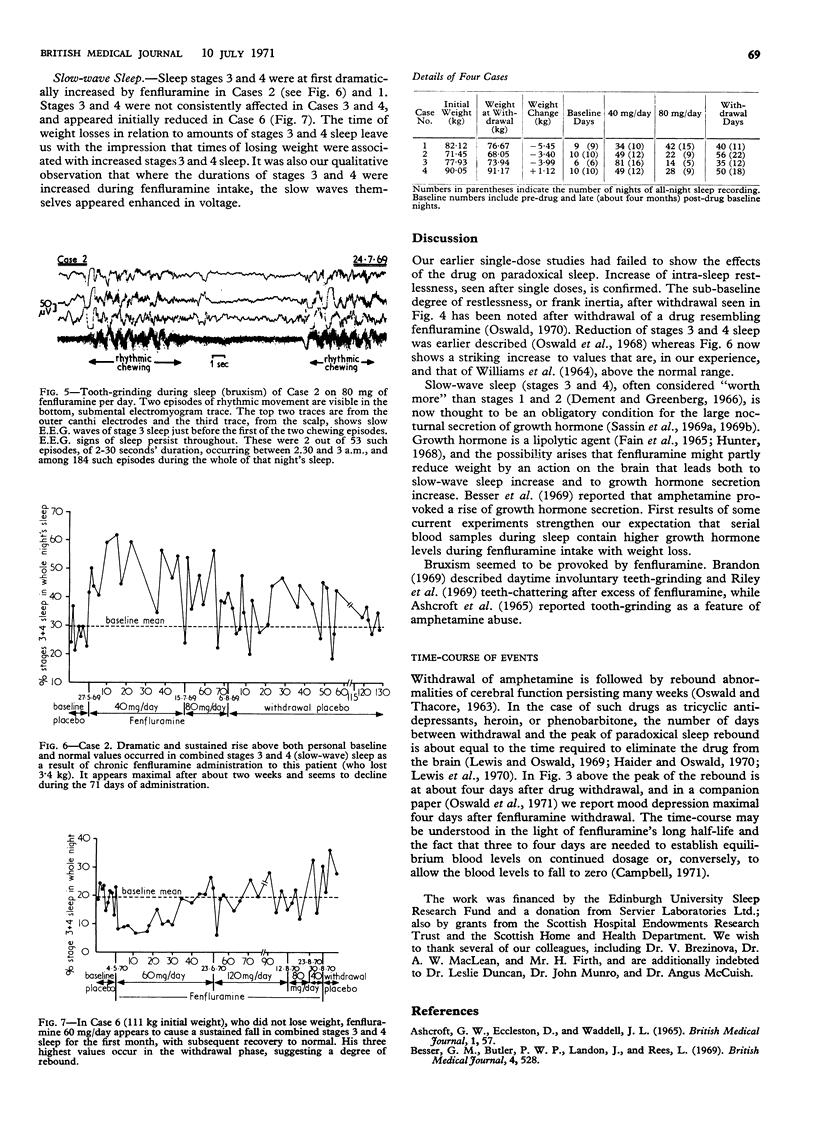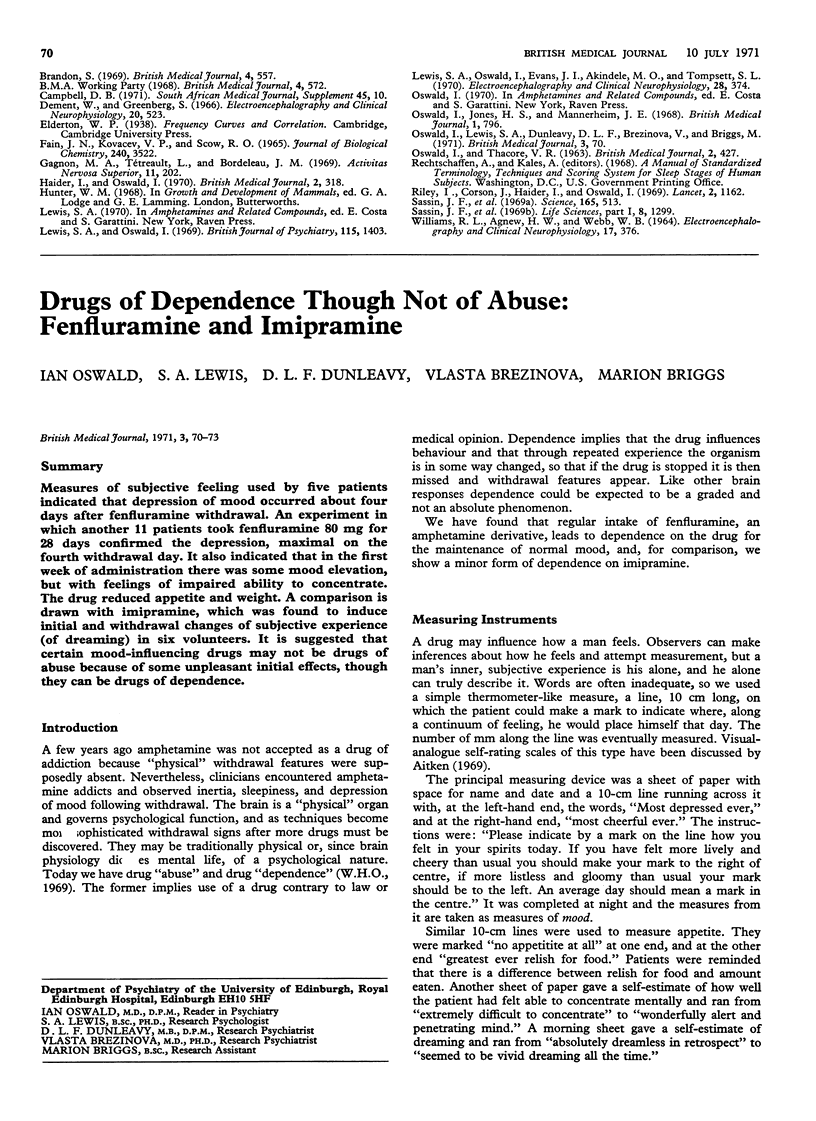Abstract
Human cerebral function was monitored electrophysiologically during sleep over a period of months before, during, and after the intake of fenfluramine, 40-120 mg/day. Effects included dose-related reduction of paradoxical sleep, increase of intra-sleep restlessness, and changes in E.E.G. slow-wave sleep. It is hypothesized that weight loss may be associated with increase of the last. Grinding of teeth (bruxism) also was noted.
Long-term studies make it possible to demonstrate changing central effects with time, including tolerance phenomena. Withdrawal abnormalities are related to the time taken for the drug to be eliminated—in the present case reaching a maximum four days after withdrawal.
Full text
PDF



Selected References
These references are in PubMed. This may not be the complete list of references from this article.
- Besser G. M., Butler P. W., Landon J., Rees L. Influence of amphetamines on plasma corticosteroid and growth hormone levels in man. Br Med J. 1969 Nov 29;4(5682):528–530. doi: 10.1136/bmj.4.5682.528. [DOI] [PMC free article] [PubMed] [Google Scholar]
- Dement W., Greenberg S. Changes in total amount of stage four sleep as a function of partial sleep deprivation. Electroencephalogr Clin Neurophysiol. 1966 May;20(5):523–526. doi: 10.1016/0013-4694(66)90110-6. [DOI] [PubMed] [Google Scholar]
- Fain J. N., Kovacev V. P., Scow R. O. Effect of growth hormone and dexamethasone on lipolysis and metabolism in isolated fat cells of the rat. J Biol Chem. 1965 Sep;240(9):3522–3529. [PubMed] [Google Scholar]
- Gagon M. A., Tétreault L., Bordeleau J. M. Psychometric studies on sleep for the evaluation of central effects of drugs. The effects of fenfluramine on sleep. Act Nerv Super (Praha) 1969;11(3):202–208. [PubMed] [Google Scholar]
- Haider I., Oswald I. Late brain recovery processes after drug overdose. Br Med J. 1970 May 9;2(5705):318–322. doi: 10.1136/bmj.2.5705.318. [DOI] [PMC free article] [PubMed] [Google Scholar]
- Lewis S. A., Oswald I., Evans J. I., Akindele M. O., Tompsett S. L. Heroin and human sleep. Electroencephalogr Clin Neurophysiol. 1970 Apr;28(4):374–381. [PubMed] [Google Scholar]
- Lewis S. A., Oswald I. Overdose of tricyclic anti-depressants and deductions concerning their cerebral action. Br J Psychiatry. 1969 Dec;115(529):1403–1410. doi: 10.1192/bjp.115.529.1403. [DOI] [PubMed] [Google Scholar]
- Oswald I., Jones H. S., Mannerheim J. E. Effects of two slimming drugs on sleep. Br Med J. 1968 Mar 30;1(5595):796–799. doi: 10.1136/bmj.1.5595.796. [DOI] [PMC free article] [PubMed] [Google Scholar]
- Oswald I., Lewis S. A., Dunleavy D. L., Brezinova V., Briggs M. Drugs of dependence though not of abuse: fenfluramine and imipramine. Br Med J. 1971 Jul 10;3(5766):70–73. doi: 10.1136/bmj.3.5766.70. [DOI] [PMC free article] [PubMed] [Google Scholar]
- Riley I., Corson J., Haider I., Oswald I. Fenfluramine overdosage. Lancet. 1969 Nov 29;2(7631):1162–1163. doi: 10.1016/s0140-6736(69)92486-6. [DOI] [PubMed] [Google Scholar]
- Sassin J. F., Parker D. C., Johnson L. C., Rossman L. G., Mace J. W., Gotlin R. W. Effects of slow wave sleep deprivation on human growth hormone release in sleep: preliminary study. Life Sci. 1969 Dec 1;8(23):1299–1307. doi: 10.1016/0024-3205(69)90034-4. [DOI] [PubMed] [Google Scholar]
- Sassin J. F., Parker D. C., Mace J. W., Gotlin R. W., Johnson L. C., Rossman L. G. Human growth hormone release: relation to slow-wave sleep and sleep-walking cycles. Science. 1969 Aug 1;165(3892):513–515. doi: 10.1126/science.165.3892.513. [DOI] [PubMed] [Google Scholar]
- WILLIAMS R. L., AGNEW H. W., Jr, WEBB W. B. SLEEP PATTERNS IN YOUNG ADULTS: AN EEG STUDY. Electroencephalogr Clin Neurophysiol. 1964 Oct;17:376–381. doi: 10.1016/0013-4694(64)90160-9. [DOI] [PubMed] [Google Scholar]


